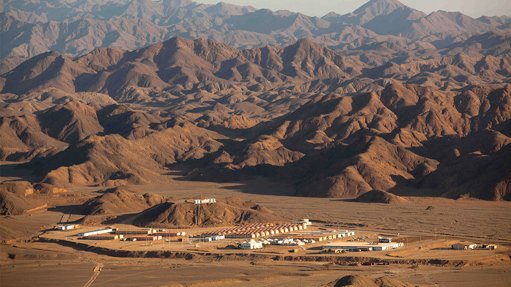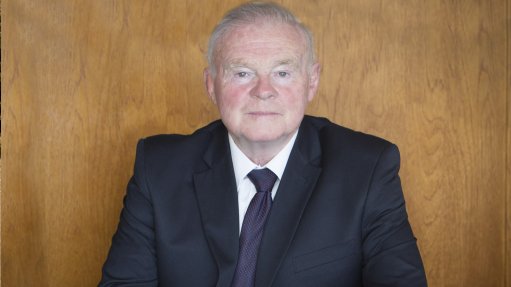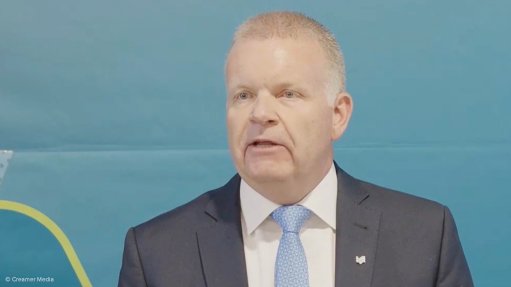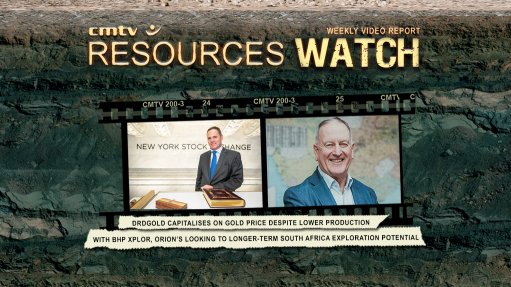Enabling exploration is urgently needed to put South African mining back in ‘sunrise’ mode

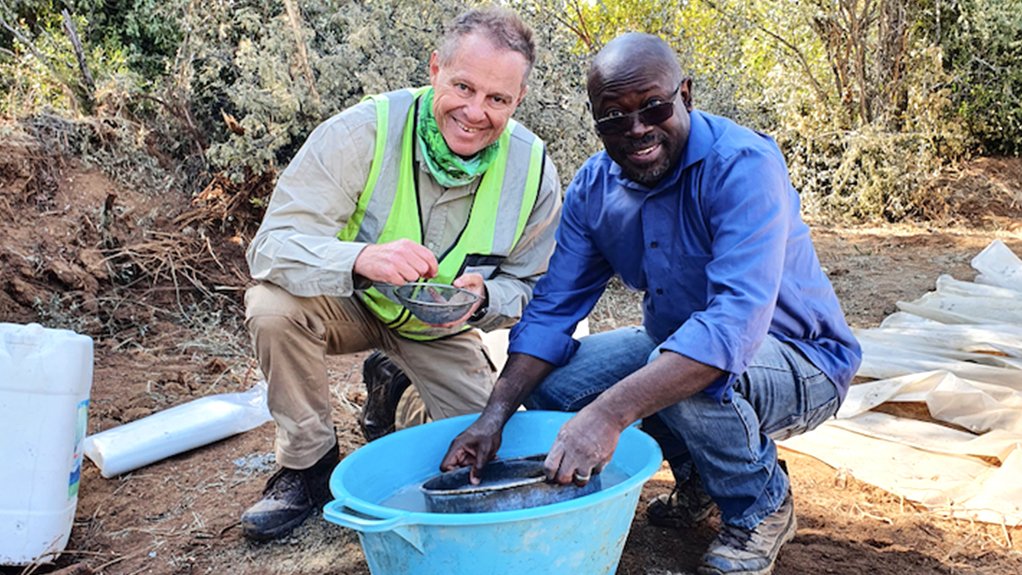
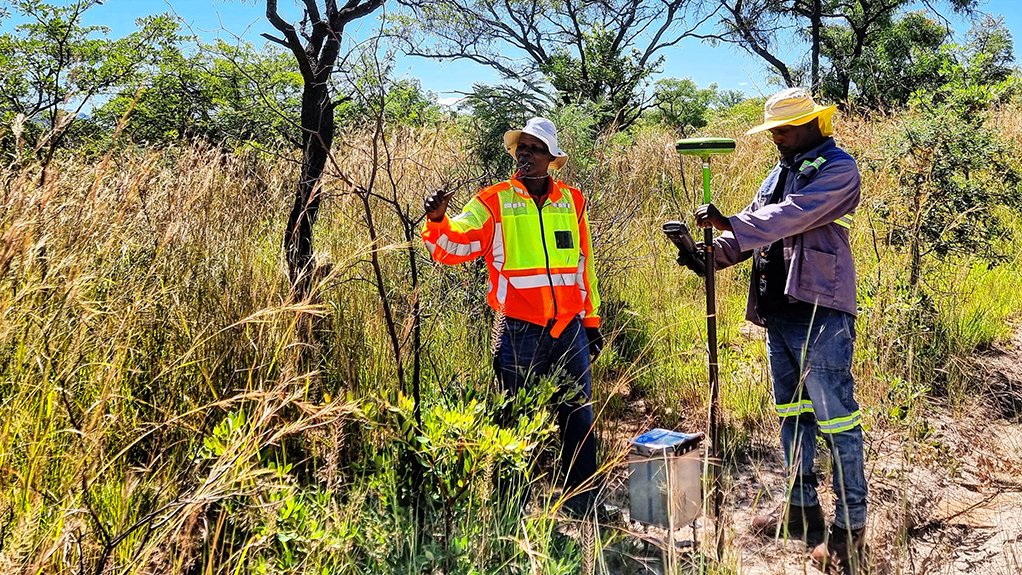
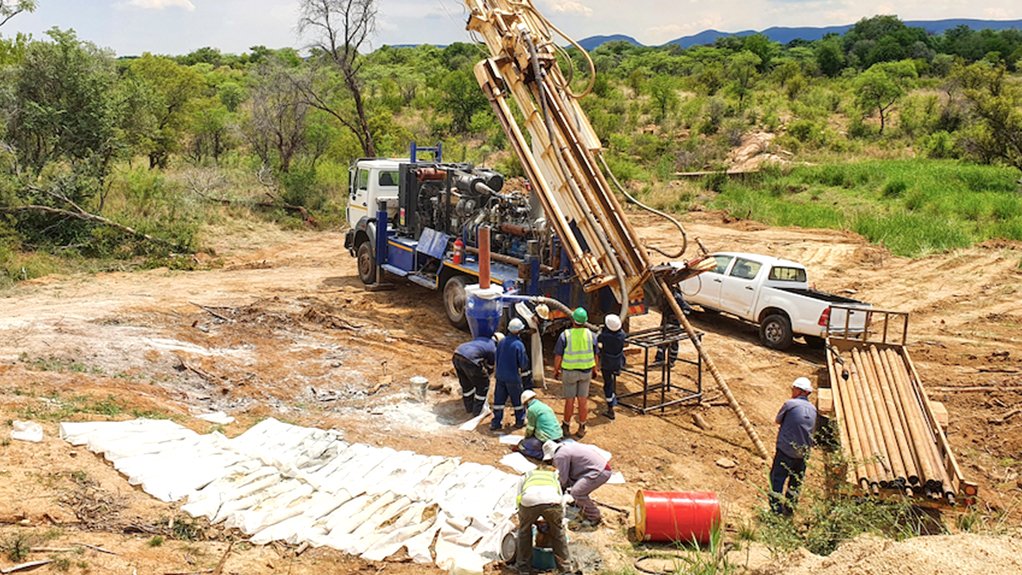
Botswana Diamonds CEO James Campbell interviewed by Mining Weekly’s Martin Creamer. Video: Darlene Creamer.
Diamond exploration activity.
Diamond exploration activity.
Diamond exploration activity.
JOHANNESBURG (miningweekly.com) – High on the list of the steps that must be taken to stop South African mining from fading further into sunset mode is free access to geological information from State institutions such as the Council for Geoscience.
Next is the provision of a modern, functional and transparent mineral cadastre system that must include access to historical holdings to ensure transparency of historical and new mineral data. A functioning cadastre system will allow explorers to see what licences are available and speedily facilitate the processing of applications for available licences.
In addition, a well-trained and functional Department of Mineral Resources and Energy (DMRE) is essential to enable the quick turnaround of licence applications and enforcement of the ‘use it or lose it’ principle.
A simplified legislative framework must be put in place and kept in place, and access to finance and capital flows must include revision of Johannesburg Stock Exchange requirements for junior exploration and mining.
Essential, too, is a tax advantage for those who invest in exploration on local stock exchanges.
These and many other pointers were provided by successful explorer James Campbell, the CEO of Botswana Diamonds, the London- and Botswana-listed development company, which has been able to work with the challenging systems that the South African government has put in place, even though it requires a great deal of work to get things done.
The absence of a central repository of information for new exploration entrants into South Africa is a large barrier to entry for newcomers, says Campbell, who spoke to Mining Weekly in a Zoom interview. (Also watch attached Creamer Media video.)
Mining Weekly: The lack of exploration in South Africa is worrying, yet Botswana Diamonds seems to be going great guns in South Africa at Thorny River and Marsfontein.
Campbell: We are able to work with the DMRE. We are able to work with the systems that the government has in place, but it does take a great deal of work to get things done. I think what was published last week was that the telephone systems for DMRE don't work. But be that as it may, we just make sure that we have people on the ground to go and visit the DMRE to make sure our licences progress. But I think what is important to mention is that we're a junior, and juniors go to places which are highly prospective, but are difficult places to work. We've operated across the whole of Africa. I ran a company called West Africa Diamonds in Sierra Leone just after the war there. We go to places and we know and acknowledge that it's hard work to get things done, whether it's the bureaucracy, whether it's the deep sand of the Kalahari in Botswana, whether it's just coming out of a war in Sierra Leone. We see these as opportunities, and that's why we believe South Africa, which has got fantastic infrastructure, although it is crumbling a little bit, is a great place to be because of its high prospectivity.
Do you foresee your exploration in South Africa transitioning to mining?
We absolutely hope so. We've applied for two mining permits on the Thorny River project already, and we're in the process of applying for a water use licence. We've done considerable geological work, bulk sampling, micro diamond work, drilling, mineral chemistry. We believe that the kimberlites, which are east of Marsfontein, and what we call the Thorny River project, are commercial, and there we’ve applied for a mining permit, which is almost a unique form of legislation, when I look at the different regulations throughout Africa. In most of Africa, it's a mining licence or nothing, and a mining permit is designed for small scale miners, and it's a really neat piece of legislation, which allows companies like ours to commercially exploit small deposits over a shorter period of time.
In your concluding remarks during a recent presentation, you spoke of the need to be able to access geological information in South Africa at zero cost. How does this compare with the situations in, say, Botswana and other African countries?
It's a very good question. I'm blessed with having spent considerable time in South Africa, many decades in fact, and so as a result of that, I've worked here for many years, and I've got a very deep network across South Africa, so I can get information from colleagues and friends and such like. But if you are a new entrant into the business in South Africa, you will not find a central repository of information. If I use the Botswana example, if you go to the Geological Survey of Botswana, you can find files going back many decades of quarterly reports submitted by mining and exploration companies on that particular prospecting licence. You can sift through those and then, with your insight and with your knowledge of the current world, you can see where areas are prospective or not. In our country, sadly, there is no requirement for submission of geological data. There is a requirement for submission of compliance or environmental data on a regular basis, but that's not of much help for explorers who are looking to discover a new deposit. Essentially, what we need is a system whereby we submit regular reports, whether they're quarterly or six monthly, and we need a repository where these reports are all publicly available, and in fact, most countries in Africa, from memory, actually have this. The DRC, Zimbabwe, Botswana and Namibia have it. It's not a complicated thing to put together, and I think it's quite a large barrier to entry for newcomers coming into South Africa.
Is that more than you just get from a cadastre, or if we had a functioning cadastre system, would you get what is needed?
Yes, a functioning cadastre system would allow people like myself to look at what licences are available, and then swiftly apply for a licensing system. Now, South Africa’s cadastre system is very clunky, using IT technology. I can quickly zoom on to the Botswana one. It's high-tech and I can see what licences are available, and who has got other licences. I can't do that in South Africa, so it's a slightly separate thing, but most functioning countries in the area of exploration, such as Canada, link the cadastre through to the back office system where you can actually access historical information in a data archive, because after all, the base should be a geographical information system, and sitting below that should be a document repository with all the historical information, but that would mean that you'd have to have scanned all the historical information from scratch, which many countries have by the way.
What you have put forward is that once licences are terminated or expire, the companies that have gathered data should then make it available to, in South Africa's case, the DMRE?
Yes and no. There's quite a big argument going on about intellectual capital in that, yes, when you've actually finished your licence, and I firmly believe in the ‘use it lose it’, so if you're not going to pursue a licence through to the ultimate form being a mining licence, you should submit your closure report with all the data actually in it, and then other companies can apply for it. I’m not keen at all in terms of submission of very detailed data until the licence has been concluded, because it could be used by others, and after all, in my area of being an explorer, you have data, you have knowledge, and then you have insight, and each of these three are the major competitive advantages, which explorers have. But, yes, when you’re finished with the licence, you should submit the data and the report and it should sit in a central repository, but more importantly as well is you should be submitting those regular reports to ensure that you're working on the licence, and if you're not working on the licence, it should be taken away, and it should be given to other people who have the technical capability and financial capacity to work the licence.
What else needs to be done to ensure that South Africa hits the very lofty target it has set for itself of attracting 5% of global exploration investment in the next five years?
There are two parts to that, aside from what we've already spoken about in terms of the cadastral and back office system. The first one is to simplify the legislation. Often investors, and these investors chiefly come from Europe, Canada, Australia, like to see a simple piece of legislation. If the legislation and regulations are very complicated, they'll bin it and their investment dollar will actually go elsewhere. My chairman has got a great saying, he says a dollar is an orphan, it will find its own way home, and we need to make sure it finds its home here. We need to drastically simplify the system in order to make it easier for explorers to operate. The second part is to financially incentivise explorers to operate. In Canada, you have a flow through share scheme. The UK and Australia have got similar schemes whereby private investors can put money into exploration stocks and get a tax advantage because of it. We did have something called Section 12 J of the Income Tax Act, and one day I went to a conference and I think I was the only Junior there. At the end of the conference, I said I thought 12 J was all about incentivising exploration juniors, rather than investing in food franchises and was told that no money has gone into mining and exploration and that it had all gone into the higher risk franchises. I responded that, with the greatest respect, I did not think they had an idea about what risk is. In summary, simplify the legislation and create some form of tax incentive to allow South African high net worth individuals to invest in exploration companies, but the only way you do that is by giving them a tax advantage. That's why 99.9% of the exploration spend in South Africa is coming from Canada, the UK and Australia, but the base is having a functioning cadastre system and a strong document repository of geological information which others can access.
What, on the private sector side, can the JSE, for instance, do to support junior explorers?
They’ve got to deregulate the area for retail investors. With the increasing bureaucracy and risk management we have in the world at the moment, it is very difficult for retail investors, which after all are the lifeblood of explorers, to invest in junior stocks. The second thing is education. If you go to London or Toronto, or to the main Australian bourses, you've got fund managers who understand the concept of exploration. When I go to a fund manager here, they ask me for cash flow. I say I'm an explorer. I will potentially give you a growth stock, very much like we did in African Diamonds, where we provided a 25 times return to our foundation investors. I think it's two things – deregulation to help the retail investor, and then secondly, education of the mining analysts and fund managers in terms of how do you assess an exploration stock.
Getting back to government, when it comes to exploration, how important is consistency, predictability and stability?
Those are absolutely crucial because that's what an investor looks at. You're already in a high risk environment when it comes to exploration, anyway, so you need the regulatory environment to be stable and predictable. If I use the Botswana example at the moment, many of the officials in Botswana have been trained at top mining universities, such as McGill. The Minister of Mines in Botswana is a young man - he's in his 40s. He's got a bachelor's of engineering from McGill and a master's in mining engineering from Wits. He's worked in senior management positions in gold, copper and diamonds, from memory, so they've got a very strong cadre, I'm using that in its proper English sense, of mining specialists who work within the department, and I think, in terms of the DMRE as far as I can see, there's plenty of room for growth and the kind of people they can employ to put into those senior leadership positions.
Article Enquiry
Email Article
Save Article
Feedback
To advertise email advertising@creamermedia.co.za or click here
Announcements
What's On
Subscribe to improve your user experience...
Option 1 (equivalent of R125 a month):
Receive a weekly copy of Creamer Media's Engineering News & Mining Weekly magazine
(print copy for those in South Africa and e-magazine for those outside of South Africa)
Receive daily email newsletters
Access to full search results
Access archive of magazine back copies
Access to Projects in Progress
Access to ONE Research Report of your choice in PDF format
Option 2 (equivalent of R375 a month):
All benefits from Option 1
PLUS
Access to Creamer Media's Research Channel Africa for ALL Research Reports, in PDF format, on various industrial and mining sectors
including Electricity; Water; Energy Transition; Hydrogen; Roads, Rail and Ports; Coal; Gold; Platinum; Battery Metals; etc.
Already a subscriber?
Forgotten your password?
Receive weekly copy of Creamer Media's Engineering News & Mining Weekly magazine (print copy for those in South Africa and e-magazine for those outside of South Africa)
➕
Recieve daily email newsletters
➕
Access to full search results
➕
Access archive of magazine back copies
➕
Access to Projects in Progress
➕
Access to ONE Research Report of your choice in PDF format
RESEARCH CHANNEL AFRICA
R4500 (equivalent of R375 a month)
SUBSCRIBEAll benefits from Option 1
➕
Access to Creamer Media's Research Channel Africa for ALL Research Reports on various industrial and mining sectors, in PDF format, including on:
Electricity
➕
Water
➕
Energy Transition
➕
Hydrogen
➕
Roads, Rail and Ports
➕
Coal
➕
Gold
➕
Platinum
➕
Battery Metals
➕
etc.
Receive all benefits from Option 1 or Option 2 delivered to numerous people at your company
➕
Multiple User names and Passwords for simultaneous log-ins
➕
Intranet integration access to all in your organisation














